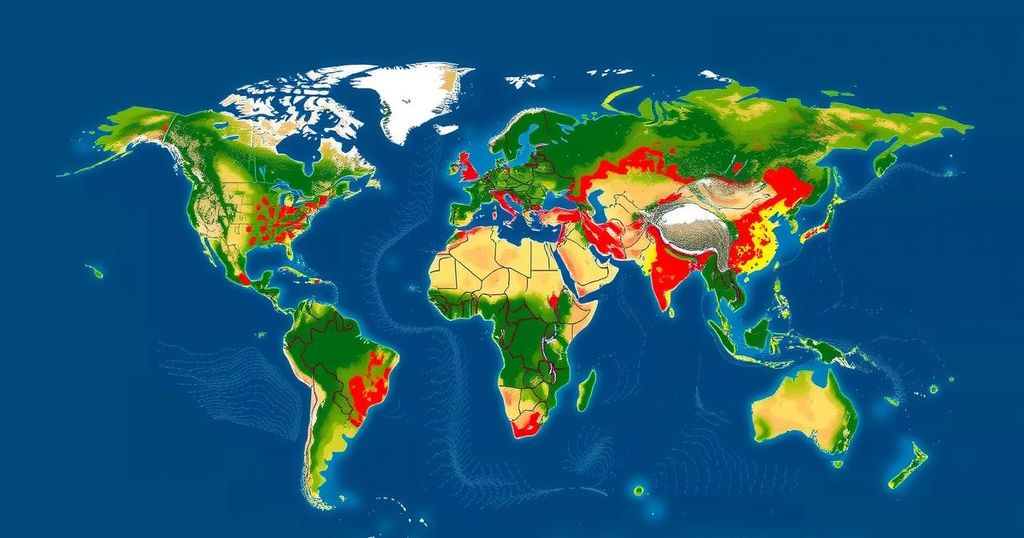Week in Review: Top Climate News for October 14-18, 2024
The Week in Review for October 14-18, 2024, covers pressing climate concerns, including a report indicating that only 2.8% of oceans are effectively protected despite global conservation promises. It details the politicization of disaster aid under Trump, impactful climate change-driven floods in Nepal, Google’s commitment to nuclear energy for data centers, emotional responses of meteorologists and youth towards climate change, and the rising distress among young Americans of diverse political identities regarding climate issues.
This week’s climate report highlights critical updates from October 14 to 18, 2024, addressing alarming statistics regarding global ocean conservation, the politicization of disaster relief under the Trump administration, and the impacts of climate change on natural disasters like the recent floods in Nepal. Additionally, advancements in energy solutions by major corporations and the emotional toll climate change has on youth across different political affiliations are presented. 1. A new report reveals that only 2.8% of the world’s ocean is effectively protected, falling short of the global conservation target established by the Kunming-Montreal Global Biodiversity Framework. With only 8% designated as Marine Protected Areas, the international community is significantly behind in safeguarding marine biodiversity. 2. Reports indicate that former President Trump initially denied disaster funding to Democratic-leaning states following natural disasters, including California wildfires in 2018. This politicization of disaster assistance raises concerns about the future responses to climate-related disasters as Trump campaigns for office again. 3. An analysis of the recent floods in Nepal highlights the increased intensity of rainfall due to climate change, which made the extreme weather event more likely. The rainfall resulted in devastating floods leading to 244 fatalities, indicating a troubling rise in climate vulnerability in the region. 4. Google has taken a notable step towards sustainable energy by constructing small modular nuclear reactors to power its data centers, marking a significant innovation in energy sourcing for the technology sector. 5. A meteorologist showed deep distress regarding the inability to effectively combat climate change while discussing Hurricane Milton’s rapid intensification, emphasizing the urgency of climate action. 6. A survey reveals heightened anxiety about climate change among American youth regardless of political affiliation, with a notable percentage expressing that climate occurrences negatively affect their mental health. Collectively, these reports underscore the urgency of climate action at multiple levels.
The report covers critical climate news, including conservation efforts, governmental responses to climate disasters, and the psychological effects of climate change on youth. The focus on ocean protection is pivotal as the world works toward global biodiversity targets. The legislation surrounding disaster relief highlights the intersection of climate change and political decision-making, illustrating how climate-related disasters can emerge as points of contention. Furthermore, the emotional impact of climate change on younger generations sheds light on the broader societal implications of environmental crises. As the effects of climate change become more pronounced, effective governmental and corporate responses are increasingly necessary to combat ongoing challenges.
This week’s climate news reinforces the need for urgent global action to protect the environment and address the impacts of climate change. From the insufficient protection of ocean areas to the psychological distress experienced by youth, the implications of climate change are far-reaching. Policymakers and corporate leaders must prioritize sustainable practices and equitable disaster responses as climate issues intensify worldwide. Furthermore, the emotional toll on the younger generation showcases the pressing need for comprehensive strategies addressing both environmental and mental health concerns.
Original Source: earth.org




Post Comment